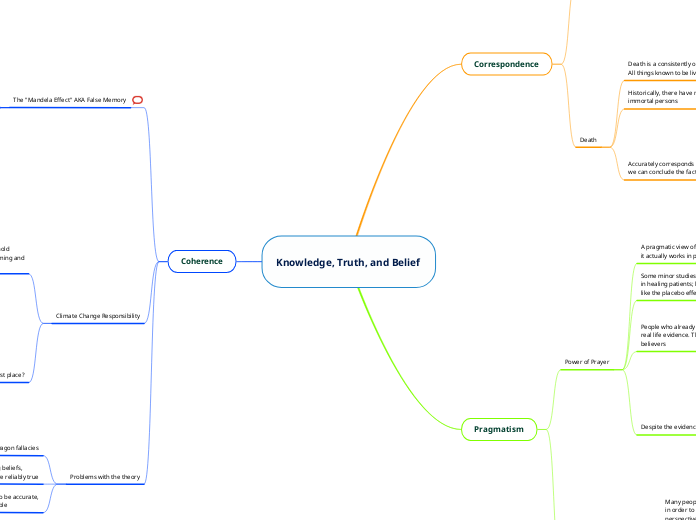a Johnathan Wright 3 éve
249
Knowledge, Truth, and Belief

a Johnathan Wright 3 éve
249

Még több ilyen
In reality, only around 90 companies contribute the most to carbon emissions and global warming
Pushes to reduce littering and to recycle more are used as ways to put responsibility on consumers
Many people hold their responsibility for climate change as true
This belief supplants the focus on industry contributions to the climate crisis. Although it's important to practice mindfulness when it comes to our environmental impact, the blame should be on companies more so than individuals.
Corporations forced responsibility onto consumers to shift focus off of themselves
Recycle more often
Much of what we recycle is left in landfill due to companies having little use for the materials.
Recycling comes after Reducing and Reusing
Use more renewable products
eat less meat
Use less gas
Many people remember the popular book series as being called the "Berenstein Bears" when this was never the case.
Although this spelling is incorrect, enough people believe it to have been true for it to become common knowledge
Many People agree on a certain spelling of the name
Shows how unreliable both our memories and knowledge can be.
How do false accounts become common knowledge?
Related to misinformation and general ignorance
I started out as a very mediocre artist who merely dabbled. It's taken me 6 years to get to where I am now.
Because, in relation to other things, talent doesn't actually seem to matter it cannot be verifiably true. Practice, on the other hand, shows real results and is consistent enough to be held as true.
I believe practice to be more important than talent because of my interactions in the world and how they have informed my approach to my art
Differing views on the evidence is discredited because it doesn't align with a person's experiences or personal beliefs.
By attaching ourselves to our beliefs, our capacity for knowledge is limited.
Interactions with the world supposedly justify these beliefs; however, they come from a somewhat biased worldview
Just because something happens directly after an event doesn't mean it was caused by it
Heavily affected worldview based on the evidence
Reinforced Belief in heaven/hell
Reinforced belief in supreme being
The fact that death will come scares many people. So we form beliefs about what happens after it or ways to counteract it.
Fountain of youth
Alchemical studies to find the elixir of life
Concept of the "Philosopher's Stone"
Reincarnation
Belief in Heaven/hell
Except no, the sun doesn't always rise in the morning
Knowledge is informed by our environment and the way we interact with it.
Those who live in these regions would not say that the sun always rising is true
Depending on your location, the sun may not rise for more than 24 hours, known as a "polar night"